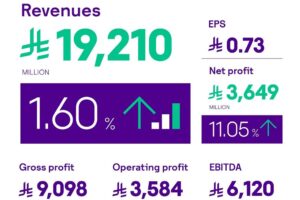Following the news that T-Mobile and SpaceX have created a technology alliance to provide satellite-based mobile phone connectivity using T-Mobile’s mid-band spectrum across the US; Tammy Parker, Principal Analyst at GlobalData, a leading data and analytics company, offers her view:
“The agreement between T-Mobile and SpaceX is a milestone in enabling emergency communications from remote locations devoid of terrestrial cell towers. The service is intended primarily for use in remote areas that are cellular dead zones, with the satellite fully emulating a cell tower, but with a much larger cell size. However, it does not alter the overall competitive landscape among US mobile operators or the need for national and international roaming agreements to support service in places served by other carriers.
“Additionally, service will initially be restricted to SMS, MMS, and certain partner messaging applications. It will not include data or voice out of the gate, highlighting the fact that this service will primarily be targeted at emergency messaging when it launches.
“T-Mobile is putting its Un-carrier spin on the news as the service is being referred to as ‘Coverage Above & Beyond’, playing off of its ‘Coverage Beyond’ international roaming and travel perks program that was disclosed in June, but at their core the two announcements have little in common. Nonetheless, it is big news that because the Starlink-supported satellite-to-cellular service will ride on T-Mobile’s mid-band spectrum, most phones on T-Mobile’s network will be able to connect to the remote service. Plus, T-Mobile has pledged to include the service at no extra charge in its most popular plans, which will be appealing to people who expect to find themselves in areas with spotty or non-existent terrestrial cellular coverage.
“There could eventually end up being dueling satellite-to-cellular offers in the US, given that Verizon and Amazon’s Project Kuiper announced in October 2021 plans to deliver connectivity to unserved and underserved US communities, though that effort is initially focused on providing cellular backhaul solutions to extend Verizon’s service reach, and, at least as announced, is not aimed at powering remote communications nationwide.”
Emma Mohr-McClune, Technology Service Director at GlobalData, offers her view:
“It’s important to see this announcement for what it is: A call to partnership action. T-Mobile will eventually want to position Coverage Above & Beyond as an extension of its roaming proposition, much in the same way that it has moved to differentiate this recently with in-flight connectivity, AAA insurance and travel discounts. But to be able to offer this form of emergency or remote service back-up internationally, SpaceX will need to attract dozens of carriers from other markets. We’re clearly a long way off that scenario.”












